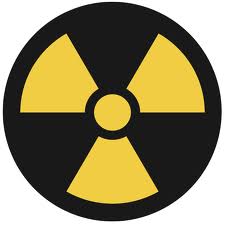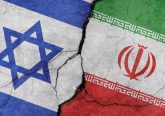 The recently concluded two day Nuclear Security Summit in Seoul (March 26-27) ended with a promise to meet again. It was a follow-up to the first summit in Washington and participants will gather in the Netherlands in 2014 for what will be the third (and final) global summit of its kind.
The recently concluded two day Nuclear Security Summit in Seoul (March 26-27) ended with a promise to meet again. It was a follow-up to the first summit in Washington and participants will gather in the Netherlands in 2014 for what will be the third (and final) global summit of its kind.
As the name suggests, the focus of the 2012 summit was ‘nuclear security’, a term not to be confused with nuclear plant safety or nuclear safeguard rules set by the International Atomic Energy Agency (IAEA). In simple terms, ‘nuclear security’ is an effort to prevent the use of an atomic bomb by terrorists or illicit actors and provide security against nuclear terrorism. To this end the key participating countries pledged to tighten security of civilian nuclear plants and pressed ahead on the need for minimum security standards for all nuclear reactors, plants, hospitals and research laboratories. It goes without saying that these are issues deserving attention. Recent revelations of 25 possible intrusions (based on fake IDs) at the Bhabha Atomic Research Centre (BARC), India’s premier nuclear facility in Mumbai, highlights this threat.
One of the few tangible steps taken in this summit was an agreement between the U.S. and the European nations (Belgium, France and the Netherlands) to reduce the use of highly enriched uranium (HEU) and shift to low-enriched uranium (LEU) by the next summit in 2014. This is a good idea; the use of HEU is dominant in civilian nuclear energy plants, but it can also be used to producing a nuclear bomb.
Another accomplishment was what the conference did not cover. While several articles in the media have criticized the summit for not mentioning North Korea or Iran, two counties considered serious threats to non-proliferation, I see this as one of the positive outcome. It was not the right forum to propagate this agenda — much of it based on speculation and worst-case scenarios. In reality, North Korea has a small stock of plutonium, much less than most nuclear weapons states, and Iran has not yet begun to produce weapons-usable material, merely suspected to have a clandestine program.
A few other ‘relative’ expectations were met at the summit. The official website of the summit provides an overview of its objective and expectations. One such objective being to ‘serve as an opportunity for (South) Korea to earn international recognition on its enhanced status following its hosting of the G20 Seoul Summit in 2010’. Indeed, this was an expectation that the summit seemed to have clearly met, enhancing South Korea’s standing in light of North Korea’s defiance and plans to launch a ballistic missile in the near future.

But rhetoric dominated much of the summit. There were restatements and re-pledges of things agreed during the 2010 Washington summit. The Seoul meeting focused on a framework of 11 ‘core issues’, a reiteration of the goals laid down in Washington — the need for global nuclear security architecture; clarifying the role of the IAEA; and laying out strategies to deal with nuclear materials, radioactive sources, nuclear security and safety, transportation security, illicit trafficking, nuclear forensics, nuclear ‘security culture’, information security and boosting international cooperation. The summit ended with a ‘13 point Seoul Communiqué’ that eschewed legally binding agreements in preference to voluntarily pledges to bolster protection of loose nuclear materials.
Ironically enough, the issue of ‘nuclear security’ should be viewed as a consequence of the failure of the existing nuclear regime, proven to be incapable of controlling either the illicit transfer of nuclear technology or preventing the military use of nuclear material intended for peaceful purposes. Indeed it is a nuclear regime even unable to enforce compliance by member states.
But we should not be too cynical: the Nuclear Summit was indeed a success for some participating states as it fell prey to political manipulation political manipulation by states seeking a platform to prove either their eligibility and need for nuclear trade (as Pakistan did); or to prove that they are responsible nuclear states (as India, South Korea and many others did); or that they can provide adequate nuclear security in order to uphold the rights of all nations to peaceful nuclear trade (as the P5 and recognized nuclear weapon states seemed to have done).
In my view, the Nuclear Summit has only further legitimized the existence of a reality that will be dominated by nuclear power and energy, thus reinforcing an existing status-quo and sidelining what I believe is one of the most important issues to be addressed: the need for complete nuclear disarmament by nuclear weapon states. Better luck next time.
Deepshikha Kumari is a DPhil student in International Relations at Oxford University.






5 Comments
I am by no means an expert on nuclear issues. Having put a disclaimer, I have a difference with the author when she says the summit did nothing to address nuclear disarmament. Despite obvious weaknesses, I still believe the appropriate forum should be the United Nations, and not these ad hoc summits.
The focus of the Nuclear Summit on Security is legitimate, however I agree with the writer in that only the focus is not enough and nations now need to take some concrete steps towards solving the danger and threat from nuclear raw-material. Especially, in India, which has been ranked as 5th worse on the Nuclear Threat Initiative’s Nuclear Security Index, which measures 32 nations possessing 1 kilogram of nuclear materials or more and India possesses 49. Indeed, it’s time to move beyond rhetoric to action!!
I’m not sure what all linkages there are between nuclear energy and weapons, since this is not my field but seems like there is a connection. If we are to move forward with nuclear energy in the future, should we not make a rational cost-benefit calculation today that goes beyond economic costs ( as Nuclear energy is promoted as the cheaper form of energy for the consumer as compared to coal and wind) to social costs of how it might affect the habitat and the people living around a nuclear plant. Fukushima was an example of what an existence of a nuclear plant can lead to and too because of reasons beyond human control. Time to re- think! maybe learn from germany that plans to shut down all its plants in the near future. There might be some good reasons for a nation like Germany to have made this decision when the dominant norm is in favor if nuclear energy.
As seen in many times in history the commitments, expectations and goals of stated political entities hardly ever reflect their actions with real life scenarios. This point is made clearly with the author’s reference to India, Pakistan and South Korea policy stance towards the NPT. To this extent, the real concern for this reader is if we accept the argument of political rhetoric as a tool to manipulate (well public opinion) states and other entities then the author needs to explain the underlying discourse on the political rationale for these states’ existing behavior with regard to NPT. Hopefully, a next piece provides a more guiding assessment into what elements we should look for to understand the unfolding of such political events in the world.
I think it is time evaluate whether we need Nuclear energy at all? Putting a nuclear plant in place is so expensive and countries like India should divert their resources to more productive purposes for its people. Moreover, as we are seeing how ‘peaceful use’ of nuclear material is vulnerable to misuse as well as political manipulation by nations-states and also for passive blackmail as we see North Korea doing today.